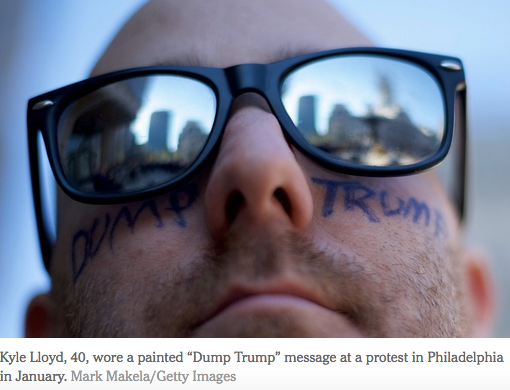Working-class Americans who voted for Donald J. Trump continue to approve of him as president, even though he supported a health care bill that would disproportionately hurt them.
Highly educated professionals tend to lean Democratic, even though Republican tax policies would probably leave more money in their pockets.
Why do people vote against their economic interests?
The answer, experts say, is partisanship. Party affiliation has become an all-encompassing identity that outweighs the details of specific policies.
“Partisan identification is bigger than anything the party does,” said Frances Lee, a professor at the University of Maryland who wrote a book on partisan polarization. Rather, it stems from something much more fundamental: people’s idea of who they are.




